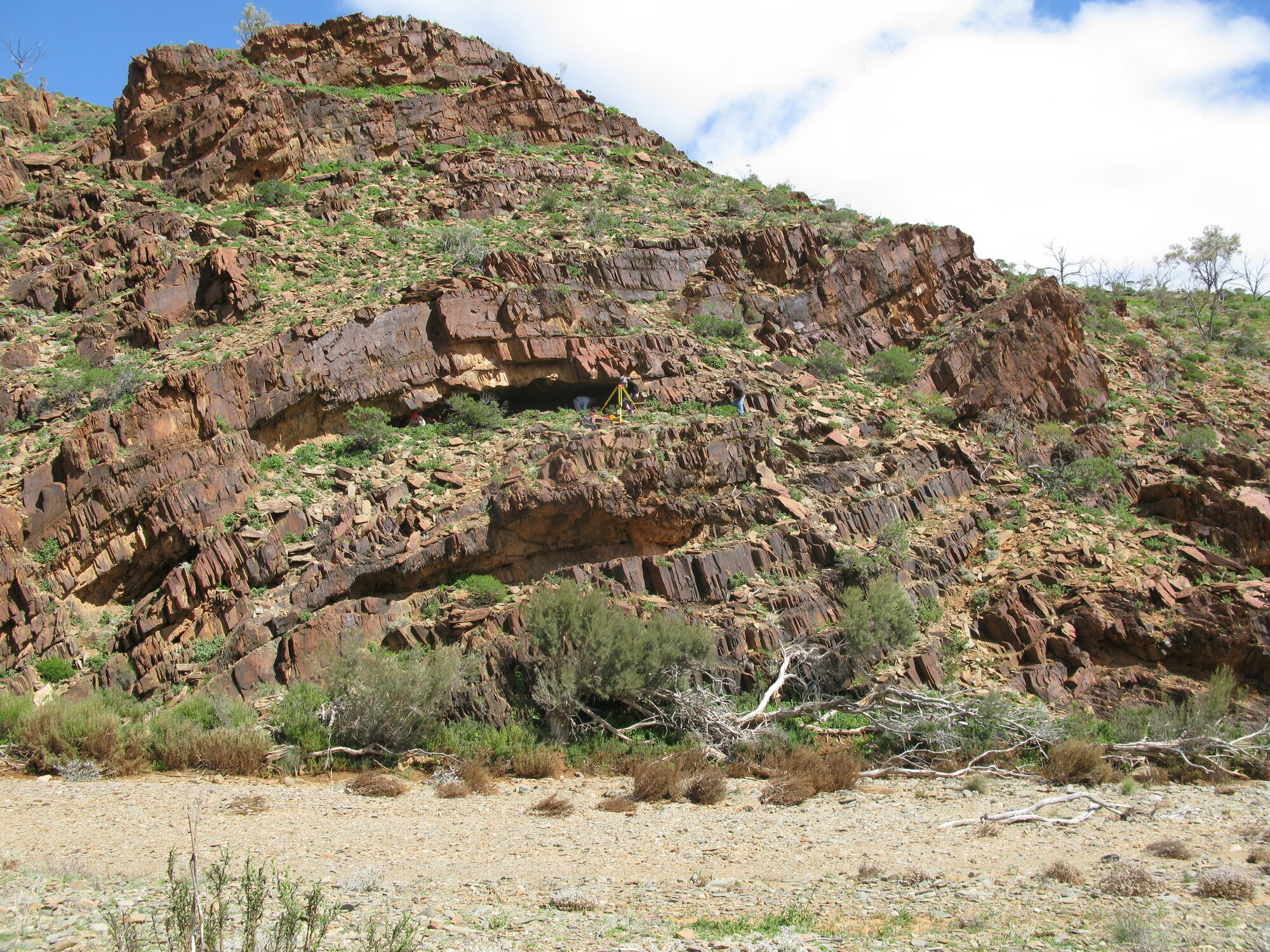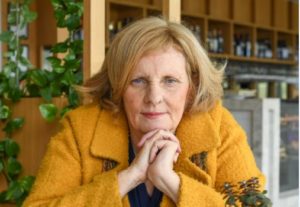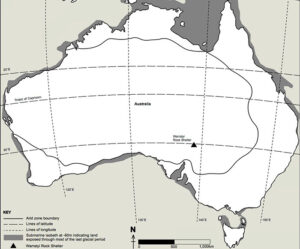
Archaeologists from Flinders University and Charles Darwin University will help lead the newly announced National Science Funding (NSF Center for Braiding Indigenous Knowledges and Science (CBIKS) – a five-year, (US) $30 million international NSF Science and Technology Center based at the University of Massachusetts, Amherst.
The centre will focus on connecting Indigenous knowledges with mainstream Western sciences to address some of the most pressing issues of our time in a new way.
CBIKS will use community-based research to undertake local, place-based studies and research projects in partnership with institutions and 57 Indigenous communities in eight international hubs.
Working with Indigenous communities to share knowledge, the NSF centre will support research by Flinders University archaeologist Professor Claire Smith and CDU Wiradjuri archaeologist Dr Kellie Pollard.

Professor Smith’s research with Dr Giles Hamm and the late Dr Clifford Charles Coulthard at the Warratyi rock shelter in the South Australian Flinders Ranges is delivering knowledge exchange workshops to better understand Warratyi’s archaeological record.
“We are exploring how Adnyamathanha world-views can transform archaeological practice and understandings of the past at the Warratyi rock shelter,” says Professor Claire Smith at Flinders University.
“Our research will incorporate Indigenous responses to climate and environmental changes at the Warratyi site, excavated and dated to 49,000 years ago, and assess how this relates to the early occupation of the region. This collaborative process includes fieldwork and excavation at the sites, followed by workshops with Adnyamathanha representatives.”
Dr Pollard of CDU is leading the development of new models of research based on the worldviews, knowledges and values of Indigenous people in Australia to forge new pathways in archaeological epistemology and methods of practice.
“Archaeological research typically relies on Western science, theories and interpretation as the dominant method for representing Indigenous history, heritage and material culture,” Dr Pollard said.
“My research is concerned with empowering how Indigenous people’s knowledges of their history, heritage and culture should be understood in equality with scientific archaeology.”
The NSF Science and Technology Centers Integrative Partnerships program has supported research in areas of national importance since 1987.
Science and Technology Centers (STCs) focus on establishing new scientific disciplines and developing transformative technologies that have the potential for broad impacts on science and society. The centres will shine light on emerging STEM fields to develop a globally competitive STEM infrastructure and conduct outreach to inform the public of breakthrough science. CBIKS, the first STC to be based at UMass Amherst, is one of five new STCs announced by the NSF.

Dean of Research in the College of Humanities, Arts and Social Sciences, Professor Sharyn Roach Anleu, says this exciting new collaborative centre will embed Indigenous research methodologies to realise its vision of greater equity across the disciplines.
“It will improve quality of life through enhanced climate adaptation and care of Indigenous homelands and cultural heritage.”
In addition to research, the centre has an important educational mission to train postdoctoral researchers and graduate research assistants, many at minority-serving institutions. Its Indigenous Science Scholarship Program and Study Abroad Program will provide undergraduates and Indigenous community members with research experience in braiding Indigenous knowledges and Western science. Indigenous Science camps and after-school programs will also provide place-based learning experiences for years K-12 students.
“Our goal is to ensure Indigenous Australians are enrolling in undergraduate archaeology degrees, leading to cohorts of Indigenous higher degree students in archaeology and more Indigenous archaeologists defining their own teaching and research programs,” says Professor Claire Smith.
Upon the completion of the initial five-year award, the Australian research will be eligible to receive further funding from the NSF to continue its mission, one which CBIKS’ Director, Professor Sonya Atalay says is critical to Earth’s future and to ethical science practices.
More information about CBIKS can be found at www.umass.edu/CBIKS.

